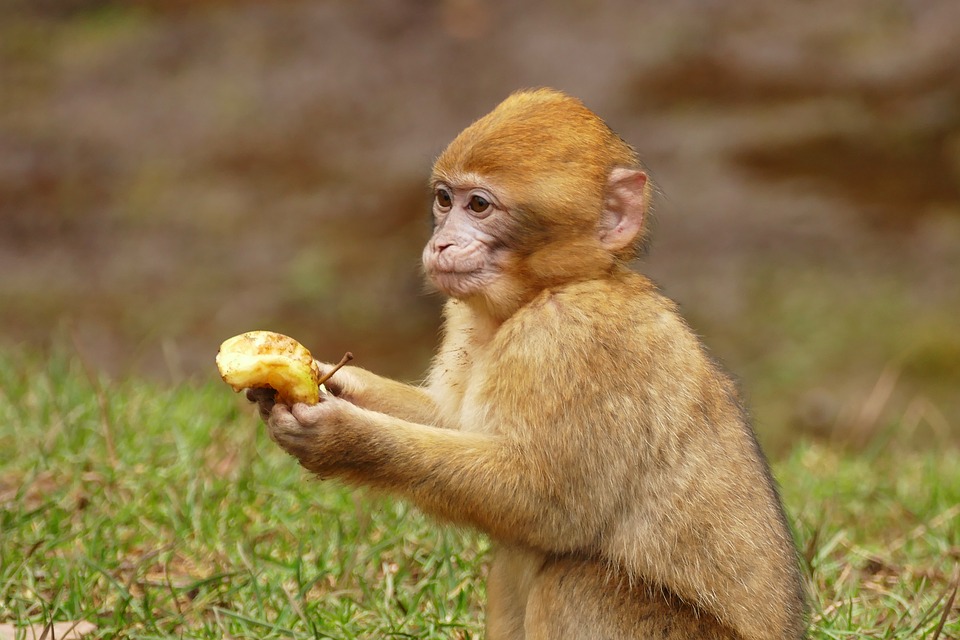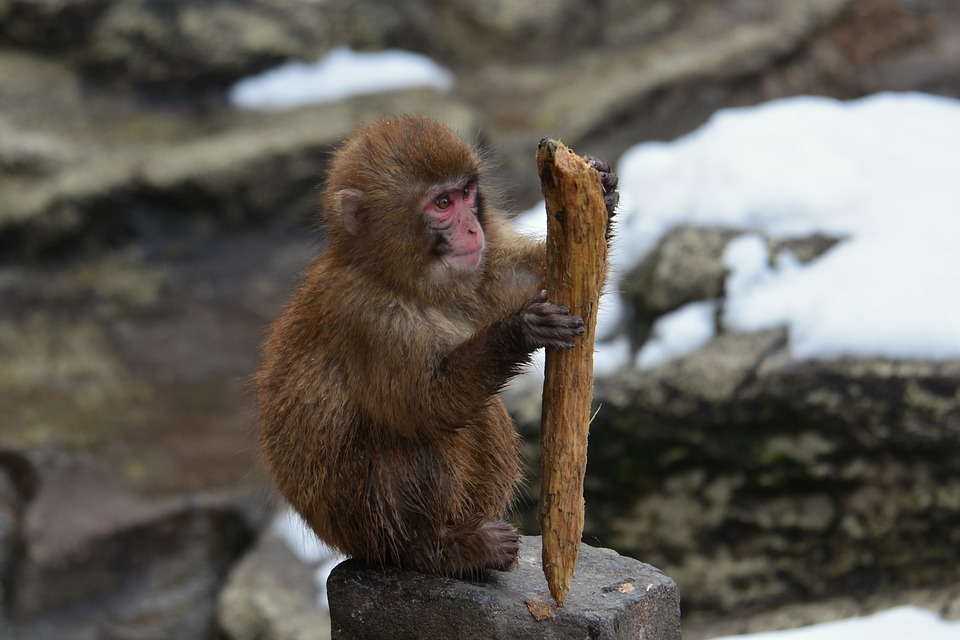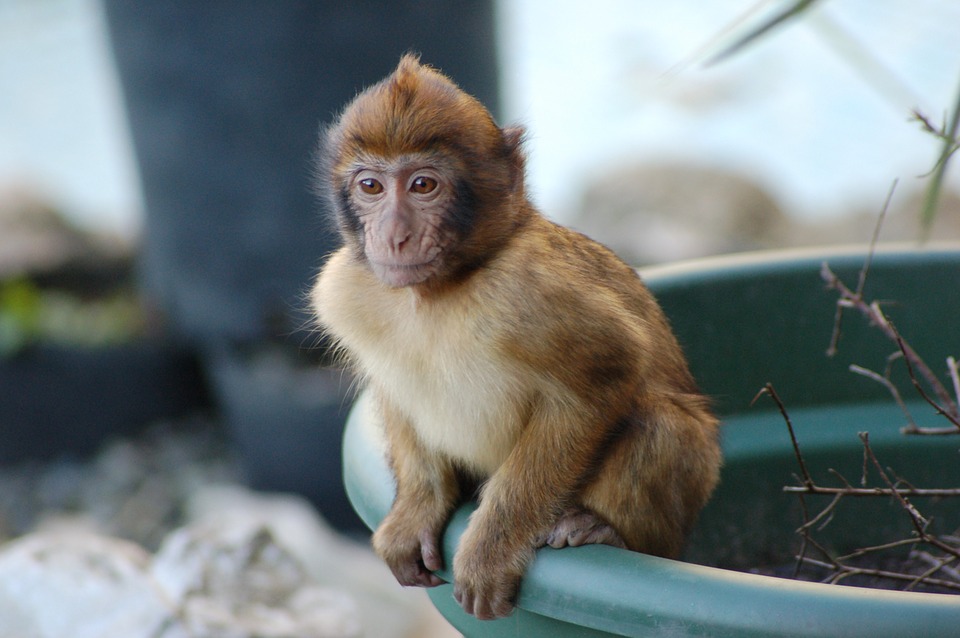How to Care for Macaques
Housing Macaques
Macaques need a large, secure cage. This way they don’t get lost in your house or run outside and climb poles and other fixtures.
While Macaques are smaller, they still require extremely large enclosures, at least 30 feet square. The best housing designs provide sufficient space and complexity to allow your pet monkey to engage in a normal range of social and non-social behaviors for adequate portions of their day.
Feeding Macaques

Macaques are omnivorous. Their diet includes the following:
- fruit
- berries
- seeds
- leaves
- flowers
- grass
- herbs
- shrubs
- crops
- insects
- eggs
- birds
- rodents
The recommended diet for this type of pet monkey consists of the following:
- 2-5% Hi Protein Treats
- 5-10% Foraging Foods (leaves, plants, stems and foraging foods)
- 15-20% Fresh Fruit & Vegetables
- 75-80% Commercial Old World Primate Diet
A diet with variety is ideal to avoid boredom and loss of appetite.
In addition to food, fresh water every day at all times is necessary.
Training Macaques
The goal of training your pet Macaque is to shape appropriate behaviors so that your pet monkey responds in a way that is desirable.
Additionally, training your Macaque can have significant benefits for animal welfare, human interaction and veterinary procedures.
Veterinary Care for Macaques as Pets

Regular veterinary visits are necessary for overall health of your Macaque. Pet Macaques don’t show signs of pain and poor health as obvious as humans, so routine veterinary visits are essential.
All Pets Veterinary Medical provides veterinary care for primates in Bryan/College Station, TX. Contact us to discuss vaccination requirements for your exotic pet.
These are just the basics on how to care for Macaques as pets. All Pets provides monkey veterinary care services in Bryan/College Station, TX. Contact us with the link below for more information
















